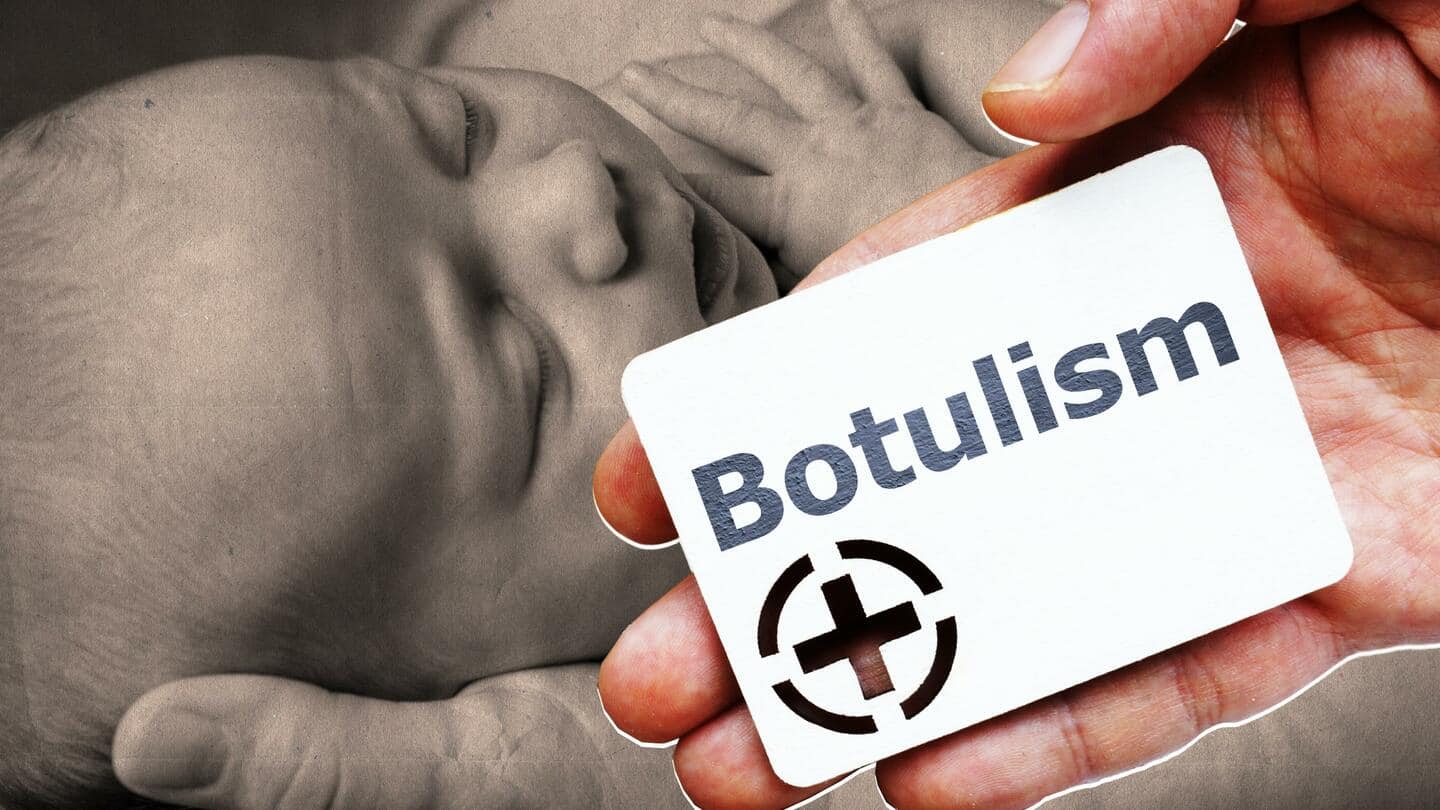
Infant botulism: Everything you need to know
What's the story
Infant botulism causes muscle weakness, which can lead to difficulty eating and breathing. The digestive systems of newborns are not fully developed enough to handle certain bacteria. Therefore, you as a parent need to be always on guard and be extra careful about what you feed your baby. From its causes and symptoms to treatment, here's everything you should know about infant botulism.
Context
Here's what our expert says
Clostridium botulinum is a bacteria that releases a toxin called "botulinum" under low oxygen concentrations. Botulinum is highly lethal and has been studied for biological warfare. In infants, ingestion of honey-bearing spores of clostridium bacteria leads to botulism. Affected babies will appear sluggish with weak crying and breathing and poor feeding along with drooping of the eyes. Immediate treatment with antitoxin is necessary.
Bacterial infection
What exactly is infant botulism?
Infant botulism is a rare bacterial infection that occurs in the large intestine of babies. It only affects babies up to the age of about one year or so. There are several different types of botulism, including food-borne botulism, inhalation botulism, wound botulism, and infant botulism. Each form originates from a specific type of bacteria called Clostridium botulinum.
Causes
Ingesting honey is one of the main causes
The most common reservoir of Clostridium botulinum bacteria is honey. That is why babies younger than one year of age should never be fed honey. These bacteria are present in soil and dust too and can easily get on surfaces like carpets and floors. These bacteria are harmless to older children and adults because their digestive systems are mature enough to fight them off.
Symptoms
What are the symptoms?
Often the first sign that you might notice in your baby is constipation. Other symptoms may manifest as weak facial muscles that make their face look flat. Your baby's cry becomes weaker. Your infant may develop breathing problems along with weak muscles in the arms, legs, and neck. The baby may also have trouble swallowing and might drool a lot.
Treatment
How is it treated?
Doctors treat botulism in infants with an antitoxin called botulism immune globulin intravenous (BIGIV). BIGIV helps babies recover faster. It is given to babies as soon as possible. If necessary, the baby is put on a ventilator to assist breathing. Doctors may provide intravenous fluids if the baby has trouble feeding. With early treatment, the affected baby can fully recover from infant botulism.
Prevention
Here's how you can prevent it
The best way to prevent infant botulism is to avoid feeding honey to the baby under the age of one year. Also, keep them away from any processed food which may contain honey. When preparing baby food, cook the vegetables adequately. Cooking can help kill bacteria and reduce the risk of accidental ingestion. Also, keep them away from dust and soil.